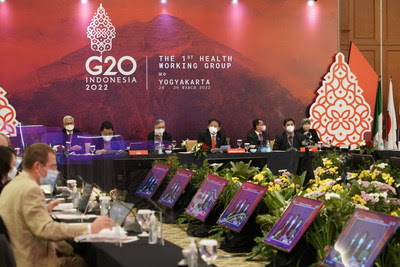- P lans for roll-out in the MENA and CEE regions underway through joint venture with global investment conglomerate Dubai Holding
PASADENA, Calif. and DUBAI, UAE, April 5, 2022 /PRNewswire/ — PopID, a consumer authentication service, and Visa (NYSE: V), the world’s leader in digital payments, announced a partnership to collaborate on launching facial verification payment acceptance in the Middle East region. The goal of the partnership is to provide cardholders with new safe, secure, and innovative ways to pay.

The first operators to welcome PopPay (PopID’s facial biometric payment solution) in the market will be Costa Coffee, MMI, and grocery chain Géant, in addition to Cove Beach at Caesars Palace Dubai and Coca-Cola Arena Dubai, both of which belong to the portfolio of Dubai Holding, the diversified global investment company headquartered in Dubai, UAE.
In addition to select brick-and-mortar businesses of Dubai Holding adopting PopPay as a new way to accept payments, PopID has recently signed an agreement with Dubai Holding to soon establish a joint venture that will support the roll-out of PopPay in the CEE and MENA regions.
During the initial phase of the partnership, Dubai Holding will deploy PopPay at some of its assets across its leading destinations and attractions, which will be followed by the adoption of the payment technology across Dubai Holding’s wider ecosystem and through partners across CEE and MENA region.
According to the Economist Intelligence Unit, 85% of executives believe biometrics will be used to authenticate the vast majority of payments in the next ten years. “Facial biometric payments are at the forefront of payments innovation, providing cardholders a fast, seamless and most importantly, secure way to authenticate and make a payment,” said Akshay Chopra, Head of Visa CEMEA Innovation & Design. “From across our partner network, we’ve seen heightened interest in co-creating new facial and biometric payments moments. Through this partnership with PopPay, we are keen to help clients roll out biometric payment capabilities faster and with more success.”
Under the alliance with Visa, issuing banks will be invited to join the platform and give their customers the ability to link their facial biometrics to their debit or credit cards to make payments; and acquiring banks will be offered the opportunity to distribute PopID’s proprietary face pay terminals to brick and mortar businesses. “We expect face pay to become the global standard for payments, and we are determined to make PopPay the consumer brand that is used and trusted by people all over the world,” said John Miller, CEO of PopID.
Throughout 2022, the platform will look to further scale across the Middle East region by partnering with key merchants to provide this leading payments technology to consumers. This second international deployment follows the launch of PopPay Japan through a joint venture with a subsidiary of SoftBank Corp.
PopID provides a trusted and secure platform that enables businesses to give their customers and employees the option of authenticating their identity using advanced facial verification.
Visa Inc. (NYSE: V) is the world’s leader in digital payments. Our mission is to connect the world through the most innovative, reliable and secure payment network – enabling individuals, businesses and economies to thrive. Our advanced global processing network, VisaNet, provides secure and reliable payments around the world, and is capable of handling more than 65,000 transaction messages a second. The company’s relentless focus on innovation is a catalyst for the rapid growth of connected commerce on any device, and a driving force behind the dream of a cashless future for everyone, everywhere. As the world moves from analog to digital, Visa is applying our brand, products, people, network and scale to reshape the future of commerce. For more information, visit About Visa and @VisaNews.
Dubai Holding is a diversified global investment company with operations in over 13 countries and employing over 20,000 people. Established in 2004, Dubai Holding touches the lives of millions of Dubai residents and visitors through its extensive portfolio of over AED 130 billion worth of assets that support the diversification and sustainable growth of Dubai’s economy across 10 key sectors: Real Estate, Hospitality, Leisure & Entertainment, Media, ICT, Design, Education, Retail, Manufacturing & Logistics and Science.
www.dubaiholding.com
www.twitter.com/dubaiholding
www.instagram.com/dubaiholding
www.facebook.com/dubaiholding
www.youtube.com/user/
https://www.linkedin.com/
Press Contact
Diane Zuniga
Golin
dzuniga@golin.com / 909-510-0433
Photo – https://mma.prnewswire.com/


